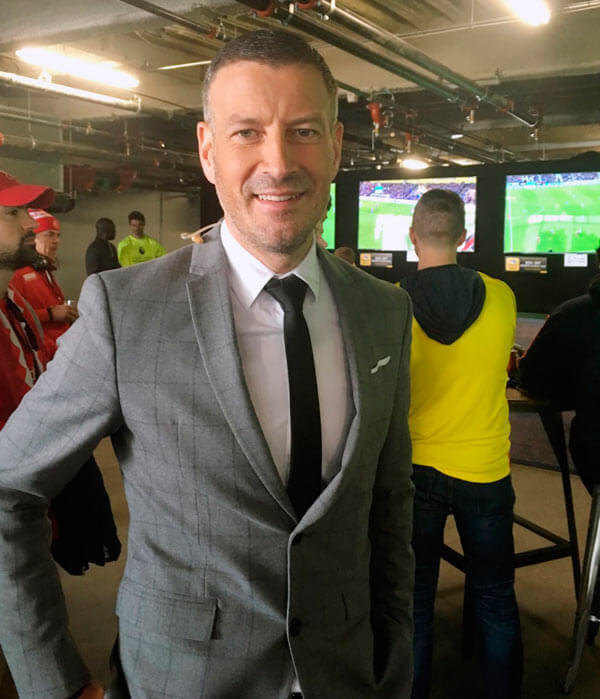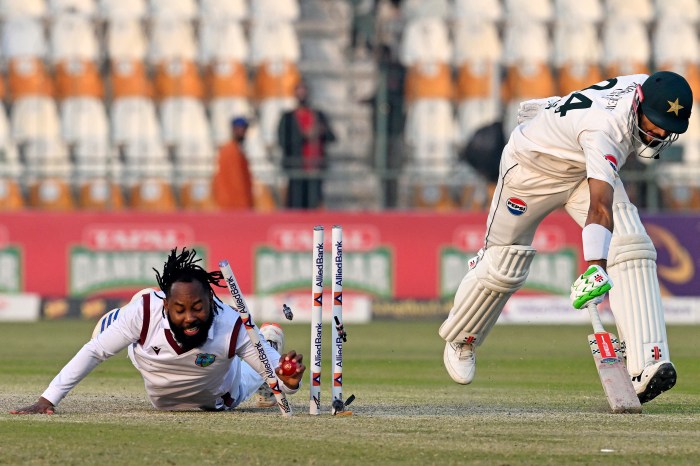NEW YORK (AP)— With English referees absent from the World Cup for the first time since 1938, Mark Clattenburg predicts that void will be filled in 2022.
Clattenburg quit the Premier League last season to work on referee education for Saudi Arabia’s Football Association. After officiating the finals of the European Championship, Champions League and Football Association Cup in 2016, had he remained in England he almost certainly would have been on the list for next year’s World Cup in Russia, when he will be 43.
Following Clattenburg’s retirement from the EPL, FIFA decided not to take Martin Atkinson, who turns 47 before the tournament starts in June. Anthony Taylor (39) and Michael Oliver (32) are viewed as the top English candidates of the next generation.
“It’s sad because we had Howard Webb, then myself. And it’s sad that we had no progression,” Clattenburg said Saturday during his first weekend as a commentator for NBC Sports. “Martin’s too old. You have an age restriction, and they were never going to take him because he had too many extensions. Michael Oliver will be the next. We’ll have Anthony Taylor. They’re the next level of referees, but they’re not at the top level in UEFA. I was on the elite referee panel in UEFA maybe three, four years before I was given the chance of big matches. So they need the experience. I’m sure they’ll be given the experience over the next one or two years.”
FIFA decided in December 2014 to abolish a rule that dropped referees from the sport’s international list at the end of the year of their 45th birthday. That was replaced by a mandate for careful evaluation once they reach that age.
Clattenburg lives in Riyadh now and his family remains in England, where he also broadcasts for BT Sports. He celebrated his big 2016 by getting tattoos on his arms of the logos of the Euro and Champions League finals.
He is looking forward to an expansion of Video Assistant Referees, which may be used in next year’s World Cup. Major League Soccer and Germany’s Bundesliga are among the leagues experimenting with VAR.
“I see many problems in all the leagues — United States, Germany, Holland, Australia — because many people are trying to use it too much,” he said. “We don’t want to stop the flow of the game, but we want to stop the scandal, the bad decision where everybody in football goes: That’s a dive. That’s a penalty.”
He cited the decision by Romanian referee Ovidiu Hategan to call a hand ball of Northern Ireland’s Corry Evans, which led to a Switzerland goal in a World Cup playoff this month. Hategan was not among the 36 referees announced Nov. 18 for a pre-World Cup seminar, a list that included 10 from Europe and two from the United States: Mark Geiger and Jair Murrufo.
“We want video where, for example the Northern-Ireland-Switzerland game, where it was clearly not a hand ball,’’ Clattenburg said. “This is the one we want to change. And I think all referees in the world want to have it. Why? Because they don’t want to be criticized for making a bad error.”
Clattenburg maintains officials’ errors have not increased. They just get noticed more.
“The game has got quicker,” he said. “People say referees are getting worse. It’s not. All that happens is we have more cameras, and it highlights the mistakes.”
He attended NBC’s first Premier League Fan Fest at the South Street Seaport, where the network broadcast its studio show Saturday. He plans to return to NBC every few months.
“I want to give people an insight into what referees think, how they act,” he said. “Now I’m free to do media work. When you’re in the Premier League, you’re not allowed to speak, and now it’s nice that I can pass on my experiences, pass on my knowledge.”

























